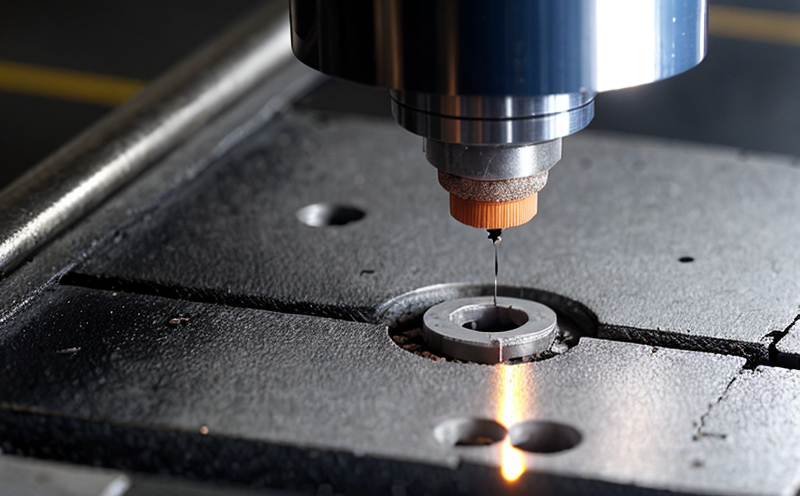IEC 60749-31 Failure Analysis of Thermal Cycling in Devices Testing
The International Electrotechnical Commission (IEC) standard IEC 60749-31 provides a comprehensive framework for the failure analysis and defect characterization of thermal cycling in semiconductor devices. This service is crucial for ensuring that devices meet stringent reliability requirements, especially in high-stress environments.
Thermal cycling tests are essential to evaluate how devices perform under extreme temperature variations. These tests can help identify potential weaknesses or defects that could lead to premature failure. The IEC 60749-31 standard offers a structured approach to understanding these failures, allowing manufacturers and quality assurance teams to make informed decisions about product design and manufacturing processes.
The testing process involves subjecting semiconductor devices to controlled temperature cycles that mimic real-world conditions. This includes rapid changes in temperature, which can stress the materials used in the device's construction. By simulating these conditions, we can uncover defects or weaknesses that may not be apparent under normal operating conditions. The results of this analysis are invaluable for improving product durability and reliability.
The IEC 60749-31 standard specifies detailed procedures for conducting thermal cycling tests. These procedures include precise control over temperature ranges, cycle times, and other environmental parameters. The standard also outlines acceptance criteria that determine whether a device passes or fails the test. Compliance with these criteria ensures that only reliable products reach the market.
Our laboratory adheres strictly to IEC 60749-31 guidelines, ensuring accurate and consistent results across all tests. We use advanced instrumentation to monitor temperature changes in real-time, providing detailed data on how devices respond under various conditions. This level of precision is critical for identifying even subtle defects that could impact overall performance.
Test Parameters
- Temperature Range: The test typically covers a wide range from -40°C to 150°C, simulating the kind of thermal stress encountered in industrial and automotive applications.
- Cycle Times: Devices are subjected to multiple cycles, each lasting several hours. Each cycle consists of heating up to the maximum temperature followed by cooling down to the minimum temperature.
The testing process is highly systematic. Specimens undergo thorough preparation before being placed in a thermal chamber where they experience the prescribed temperature cycles. Our laboratory uses state-of-the-art equipment capable of maintaining precise control over environmental factors, ensuring accurate and reproducible results.
Instrumentation
- Thermal Chamber: A specialized chamber that can maintain temperatures within narrow tolerances to simulate realistic operational environments.
- Data Acquisition System: Equipped with sensors and software that continuously monitor temperature changes during each cycle, capturing detailed data on device performance.
The data collected from these tests is analyzed using advanced analytical techniques. This analysis helps in pinpointing specific areas of concern within the devices being tested. It also aids in understanding how different materials behave under thermal stress, which can guide future improvements to product designs.
Why It Matters
The reliability and performance of semiconductor devices are paramount for industries ranging from automotive to consumer electronics. Ensuring that these components can withstand extreme temperature variations is critical to preventing costly failures in the field. By adhering strictly to IEC 60749-31 standards, we provide our clients with peace of mind knowing their products have been thoroughly tested and validated.
Failure analysis through thermal cycling not only enhances product longevity but also contributes significantly to reducing waste and environmental impact. Identifying defects early in the development cycle allows for corrective actions that can prevent unnecessary production runs or rework, ultimately saving time and resources.
Eurolab Advantages
Our laboratory offers several advantages when it comes to IEC 60749-31 testing:
- Expertise: Our team comprises highly skilled professionals with extensive experience in semiconductor and microchip testing.
- Comprehensive Services: We provide a full range of services from initial consultation to final report generation, ensuring a seamless process for our clients.
We invest continuously in cutting-edge technology and training programs to stay at the forefront of industry practices. This commitment ensures that we remain compliant with the latest standards while delivering accurate and reliable results.





